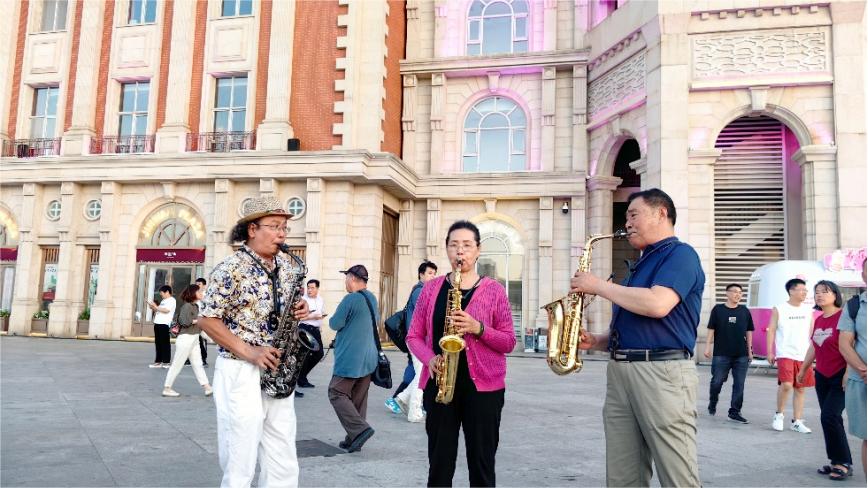Bearing China's lunar exploration endeavors in mind

Researchers weigh the Chang'e-6 lunar samples during a returner opening ceremony at the China Academy of Space Technology under the China Aerospace Science and Technology Corporation in Beijing, capital of China, June 26, 2024. (Xinhua/Jin Liwang)
BEIJING, June 30 (Xinhua) -- Upon the complete success of the Chang'e-6 mission, which brought back the world's first samples from the far side of the moon, President Xi Jinping promptly extended his congratulations.
"The outstanding contributions you have made will always be remembered by the country and the people," Xi told all those who participated in the mission in a congratulatory message.
Xi, also general secretary of the Communist Party of China (CPC) Central Committee and chairman of the Central Military Commission, has always kept the country's lunar exploration endeavors in his mind.
It is a tradition for the president to extend congratulations upon the success of each Chang'e mission.
He also met representatives of space scientists and engineers who participated in the Chang'e-3, Chang'e-4 and Chang'e-5 missions, inquired about their work and life and took pictures with them.
For three consecutive years from 2019 to 2021, Xi highlighted the lunar exploration achievements in his New Year speech.
"Great undertakings are based on innovation, which is crucial for our future," Xi said in February 2019 when meeting representatives of space scientists and engineers who participated in the research and development of the Chang'e-4 mission.
Living up to Xi's expectations, China's researchers and engineers have taken a self-reliant and ingenious path in the lunar exploration program.
Chang'e-4 made history by being the first mission to achieve soft landing on the far side of the moon. Its rover Yutu-2 started roaming and conducting surveys on this rarely-explored terrain in 2019, leaving moving human trails on the far side of the moon for the first time.
Chang'e-5, launched in 2020, was China's first mission to collect and return lunar samples to Earth. Unlike sampling missions of the United States and the Soviet Union, China chose a complicated technological approach including unmanned rendezvous and docking in lunar orbit, which could bring back more samples and lay a technological foundation for manned lunar missions.
Based on the experience of Chang'e-5, Chang'e-6 made further innovations by collecting and returning lunar samples from the moon's far side, an unprecedented feat in human lunar exploration history.
"We must be bold in our pursuit of innovation, acquire core technologies, strive to be the backbone of the country's aerospace industry, and scale new heights in space science and technology," said Xiong Tianci, a young designer with the China Academy of Launch Vehicle Technology, developer of the Long March-5 carrier rockets that sent Chang'e-5 and Chang'e-6 into space.
Noting that exploring the vast universe is humanity's common dream, Xi has stressed the importance of conducting international space cooperation and making contributions to the well-being of all mankind.
China's lunar exploration program stands as evidence of the country's consistent promotion of international cooperation in the field of space exploration.
China welcomes international applications for the lunar samples brought back by the Chang'e-5 and Chang'e-6 missions for scientific researches. Scientists from countries such as Australia, Russia, France, the United States, Britain, and Sweden have taken part in the research of the Chang'e-5 lunar samples.
Chang'e-6 has carried four international payloads, respectively from the European Space Agency (ESA), France, Italy, and Pakistan. Chang'e-7 will carry six international scientific instruments, and Chang'e-8 will offer 200 kilograms of international payload capacity and has garnered over 30 applications.
Xi's guidance and concern on the lunar exploration program has inspired numerous scientists and engineers, who are committed to advancing major space projects, including deep space exploration, and enhancing international exchanges and cooperation.
"We will continue to foster independent innovation capabilities and improve the independent innovation system, so as to propel bigger and further steps in space exploration," said Zhang Gao, an expert involved in the development of the Chang'e-6 probe from the China Aerospace Science and Technology Corporation.
Photos
Related Stories
- Xi sends congratulatory letter on opening of Shenzhen-Zhongshan cross-sea passage
- Xi's speech at national sci-tech conference published
- China ready to advance comprehensive strategic partnership with Peru to new heights: Xi
- World Insights: Five Principles of Peaceful Coexistence -- timeless guide for int'l relations
- Xi addresses conference marking 70th anniversary of Five Principles of Peaceful Coexistence
- Xi addresses conference marking 70th anniversary of Five Principles of Peaceful Coexistence
Copyright © 2024 People's Daily Online. All Rights Reserved.









